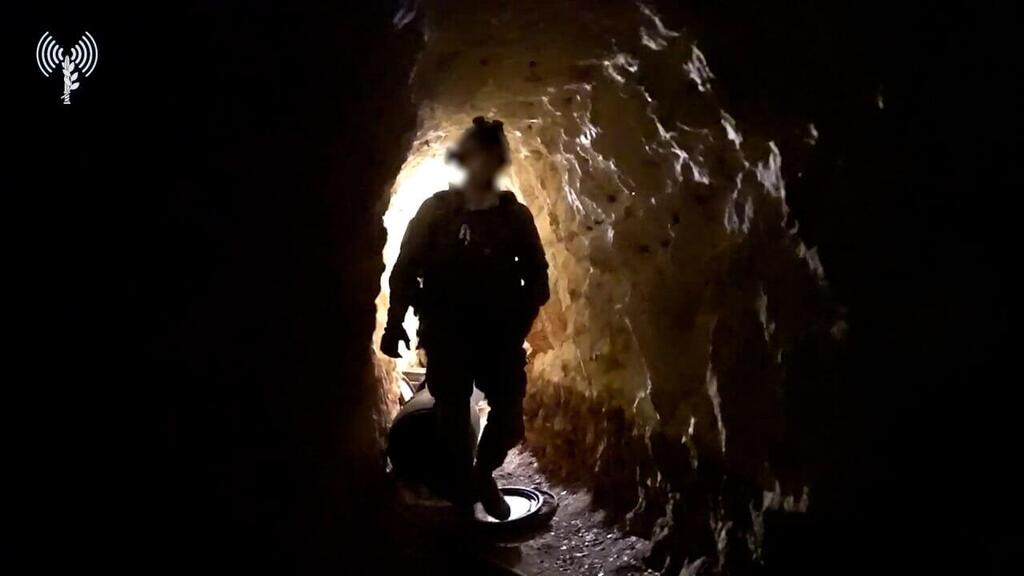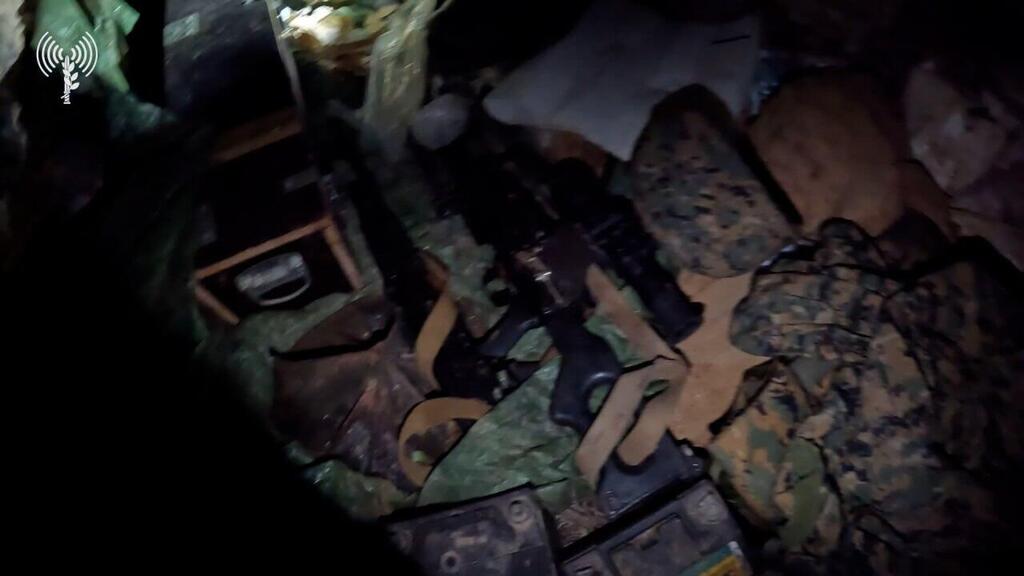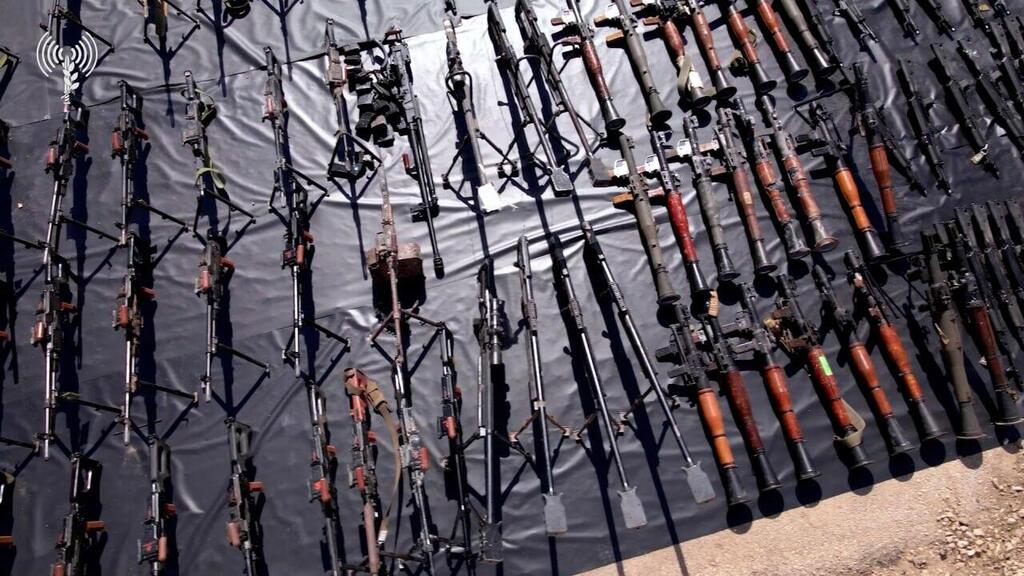Getting your Trinity Audio player ready...
The IDF spokesperson Rear Admiral Daniel Hagari revealed Thursday that Hezbollah's Radwan Force turned civilian villages in southern Lebanon into fortified combat zones and military staging areas concealed beneath dense vegetation.
"For years, Hezbollah has been planning how it would launch an incursion into our territory on command, and now we are exposing their strategy," said Hagari.
"For the past month, our forces have been operating in villages and areas near the border to push Hezbollah away from the front line," he said. "The terror group has built a system of underground combat facilities beneath thick vegetation, where they store various weapons."
Hagari explained that in these areas, Hezbollah has "hidden" underground command centers for the Radwan unit, with entrances intentionally placed beneath residential buildings as part of their preparation for an attack. "Over the past year, the Northern Command has carried out a series of strikes and special operations targeting these infrastructures in southern Lebanon to weaken Hezbollah's capabilities and eliminate the threat to northern residents," he said.
Ammunition and weapons found by IDF forces
(Video: IDF Spokesperson's Unit)
Hagari presented two examples to illustrate what Israeli forces have encountered, showing how Hezbollah has prepared the area in the Lavona region of southern Lebanon as a forward base for potential incursions. "Hezbollah has constructed a network of underground combat facilities beneath dense vegetation. Our forces have operated in the area over the past month, clearing it of terrorist infrastructure, including the dense vegetation," he noted. In adjacent areas, he mentioned, living quarters with beds and combat equipment were found concealed in dense foliage near the border.
Another example highlighted was the IDF's activity in the rural areas of southern Lebanon, where villages have long become Hezbollah strongholds. "In the village of Mhaibib in southern Lebanon, Hezbollah hid an underground command center for the Radwan unit. The entrances to the command center were deliberately located beneath residential homes. Along hundreds of meters of underground pathways, we discovered long-term living quarters that included bedrooms, kitchens, food supplies, showers, scooters, and a large cache of weapons—all part of their preparation for an attack."
He noted that the forces confiscated and destroyed the weapons found on-site and neutralized the "main route" of the local tunnel network. "Hezbollah has built all this over the years and invested substantial resources, and now we are denying them that capability," Hagari said.
"The underground infrastructures I presented here do not cross into Israeli territory. These are underground staging areas that Hezbollah has built beyond the border as part of their strategy to launch incursions into Israel. So far, we have identified only one tunnel that crossed just a few meters into our territory—and we destroyed it." He added, "In the past month alone, we have attacked more than 3,200 targets in southern Lebanon, including around 350 weapons depots."
Get the Ynetnews app on your smartphone:







